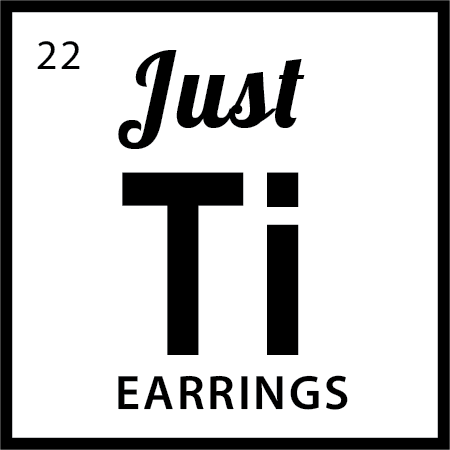About Metals in earrings: Titanium, brass, copper, nickel, chromium, cobalt, iron, zinc, ...
Hypoallergenic, meaning "below normal" or "slightly" allergenic, was a term first used in a cosmetics campaign in 1953. It is used to describe items (especially cosmetics and textiles) that cause or are claimed to cause fewer or least likely to cause an allergic reaction.
So far, public authorities in no country provide an official certification that an item must undergo before being described as hypoallergenic.
Hypoallergenic is a marketing term that may be exploited in some cases doesn’t mean that it has no value, it just is too vague.
What causes allergies from jewellery?
Most costume jewellery is made of a mixture of different metals alloys such as brass, copper, nickel, chromium, cobalt, iron, zinc …etc.
Nickel is the most common allergy.
What percentage of women have an allergy to nickel?
Nickel allergy is a chronic, recurring problem; females are affected more commonly than males. Nickel allergy may develop at any age.
Results: From 1992 to 2004, 25,626 patients were patch-tested. The percentage of women tested was fairly constant
(61.4 - 66.3%). A steady increase in nickel sensitivity was seen from 1992 to 2004,
Conclusions: Nickel allergy continues to increase in younger and older men and women patch-tested in North America. The data show a steady increase in nickel sensitivity from 14.5% in 1992 to 18.8% in 2004 .We found that nickel sensitivity has increased over the last 12 years and that most of this increase is due to the prevalence in women.
Selling jewellery which have prolonged contact on the skin to release more than 0.5 micro grams of nickel per square centimetre per week is illegal in the UK.
Earrings cause more of a problem then necklaces or bracelets because the earring sits in a pierced hole with low oxygen and the oils and salts of your skin eat away at the metal.
Some companies that sell (hypoallergenic) earrings use various metals with nickel and plate them with gold or silver. Two problems with this, first there is a small percentage of nickel in gold and silver, and second ,the plating gets worn off over time and eventually exposing the nickel underneath the plating.
What's out there for women with sensitivity to various metals?
Nickel free: Often nickel free earrings have some nickel in it, possibly a lower amount. (about 5%) This will cause a reaction with some women.
Earrings for sensitive ears: Vague, no way of telling what metal alloys are melted together.
Surgical steel: Although it sounds nice and clean, what surgical steel is mainly used for are for medical instruments because of its strength ability to stay sharp, corrosion resistant and the ability to withstand harsh soaps, cleaners and intense heat. Nickel is used in making these instruments to make them harder.
Stainless steel: The latest so called hypoallergenic jewellery is stainless steel. These earrings are made of over 100 different elements, most containing nickel around 8% to 10.5%.
Plastic: The posts need to be thicker in order not to break. Therefore they are too thick and cause irritation.
Gold: Is often made of a gold alloy, the most common being 18ct, with 24ct being entirely pure and much softer. 18ct gold usually contains 75% gold and the remaining 25% copper, silver and traces of other metals. A lower purity than 14 or 18 carat (58 to 75%) is not recommended because it contains nickel. In lower quality gold, zinc, nickel and other irritants can also be found. Using 18 or 24 gold would be too costly.
Silver: Same as gold, there different types of silver some have nickel and contains copper which overtime will make your skin turn green.
Why Titanium ?
Titanium jewellery is lightweight it is highly corrosion resistant and less likely to react with body fluids and is used in body jewellery.
Titanium is used in dental implants and in the medical field. It is often manufactured in either commercially pure grades 1 to 5 or grade 23 Ti 6AL4V ELI also known in the medical field as ASTM F136.
But not all titanium is equal. There are over 29 grades of titanium for example some grades are used for aerospace. We use medical grade titanium.
Conclusion:
Titanium is the best element for pierced earrings as it has been proven to be safe and does not cause irritations.
